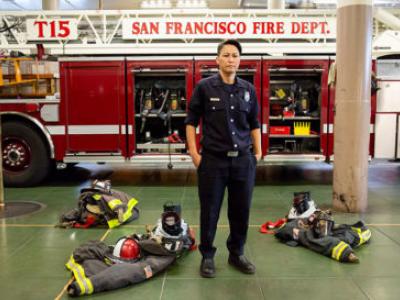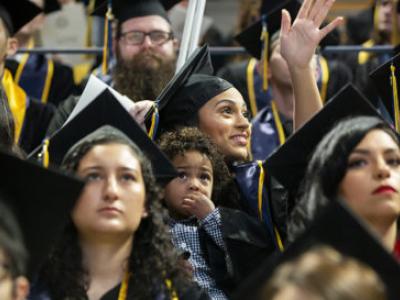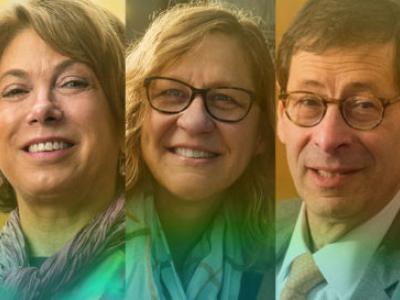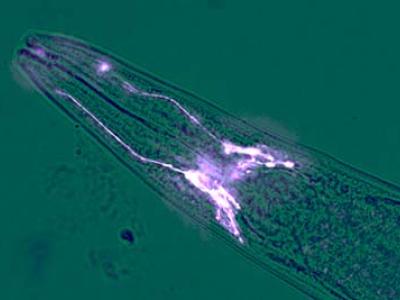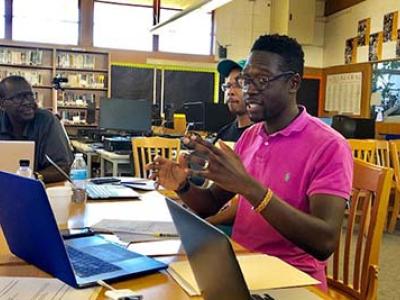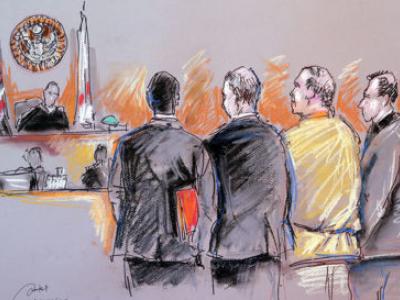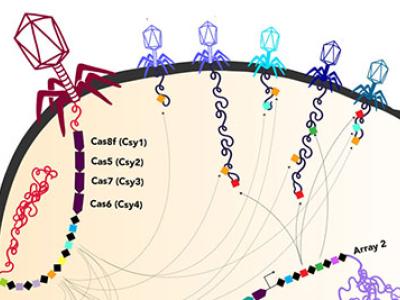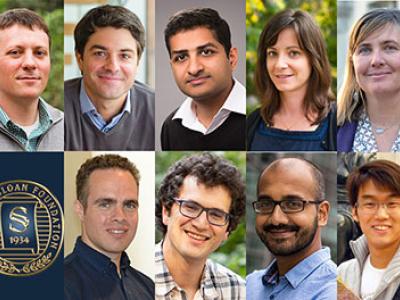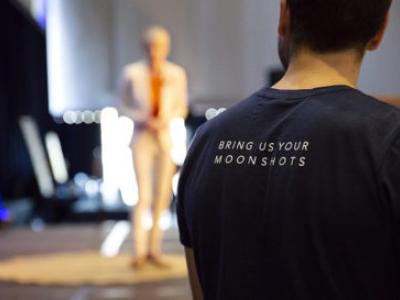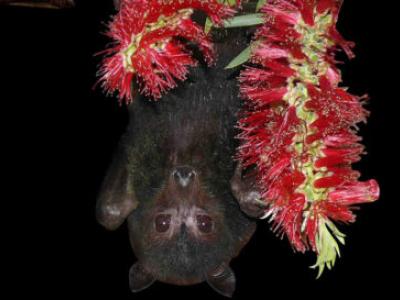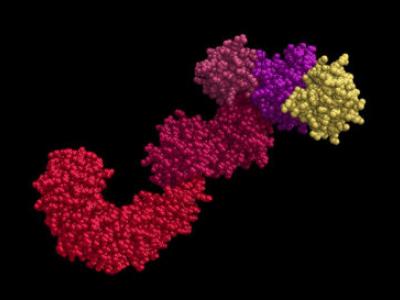San Francisco’s women firefighters are exposed to higher levels of certain toxic PFAS chemicals than women working in downtown San Francisco offices, shows a new study led by researchers at the University of California, Berkeley, the University of California, San Francisco, and Silent Spring Institute.
Research News
Learn more about UC Berkeley's researchers and innovators.
Showing 1393 - 1408 of 3459 Results
Rucker Johnson, Chancellor’s Professor of Public Policy, has been elected to the National Academy of Education.
Professor Johnson is a labor economist who specializes in the economics of education, with an emphasis on the role of poverty and inequality in affecting life chances.
In an era of financial insecurity and cultural tension, a dystopian vision of university education has gained traction in the United States: The cost of public higher education is too high, critics say, and when student debt and job insecurity are factored in, the benefits are too few.
But for UC Berkeley economist David Card, that critique ignores a mass of positive data. While profound challenges confront American higher education, he says, universities still bring enormous economic benefits to individual students and to the nation.
Three UC Berkeley economists with deep experience in national and international policy have been appointed to California Gov. Gavin Newsom’s new Council of Economic Advisors, the governor’s office has announced.
While many of us worry about proteins aggregating in our brains as we age and potentially causing Alzheimer’s disease or other types of neurodegeneration, we may not realize that some of the same proteins are aggregating in our muscles, setting us up for muscle atrophy in old age. UC Berkeley scientists have now found brain cells that help clean up these tangles and prolong life in worms and possibly mice. This could lead to drugs that improve muscle health or extend a healthy human lifespan.
The Democratic presidential field is divided and public opinion is fragmented and in flux. For California primary election voters, it’s an opportunity to step up on Super Tuesday to cast a vote that could propel one candidate into the frontrunner’s position.
The intricate spotted patterns dappling the bright blooms of the monkeyflower plant may be a delight to humans, but they also serve a key function for the plant. These patterns act as “bee landing pads,” attracting nearby pollinators to the flower and signaling the best approach to access the sweet nectar inside.
According to the U.S. Department of Education, in 1994, two-thirds of public school students were white. More than 20 years later, fewer than half were. In contrast, today, male teachers of color make up less than 10% of the workforce, and black males represent 1.9% of all public school teachers in the country, but have one of the highest rates of turnover. Through his research with black male teachers of color in Boston public schools, Travis Bristol found that black male teachers were leaving at higher rates because of poor working conditions and a lack of resources from school administrators.
The Breakthrough Listen Initiative today (Friday, Feb. 14) released data from the most comprehensive survey yet of radio emissions from the plane of the Milky Way Galaxy and the region around its central black hole, and it is inviting the public to search the data for signals from intelligent civilizations.
In a study with potentially far-reaching implications for criminal justice in the United States, a team of California researchers has found that algorithms are significantly more accurate than humans in predicting which defendants will later be arrested for a new crime.
Scientists have discovered hundreds of unusually large, bacteria-killing viruses with capabilities normally associated with living organisms, blurring the line between living microbes and viral machines.
Nine young faculty members at UC Berkeley have been awarded a Sloan Research Fellowship, an honor given yearly to the brightest up-and-coming scientists in the United States and Canada.
UC Berkeley is not just one of the best research universities in the world, but also a unique place for entrepreneurs, students and alumni to grow and build their own innovative startups. Many of the ideas are based on issues young entrepreneurs first encountered in Berkeley classes or labs. Examples of which were presented at Berkeley SkyDeck’s annual Demo Day, where entrepreneurs pitched new devices, apps or inventions that, they hope, will provide big, bold fixes to the world’s problems, from climate change to disease.
It’s no coincidence that some of the worst viral disease outbreaks in recent years — SARS, MERS, Ebola, Marburg and likely the newly arrived 2019-nCoV virus — originated in bats.
A new University of California, Berkeley, study finds that bats’ fierce immune response to viruses could drive viruses to replicate faster, so that when they jump to mammals with average immune systems, such as humans, the viruses wreak deadly havoc.
Chronic inflammation, which results when old age, stress or environmental toxins keep the body’s immune system in overdrive, can contribute to a variety of devastating diseases, from Alzheimer’s and Parkinson’s to diabetes and cancer.
Despite numerous California state legislative wins in support of Accessory Dwelling Units (ADUs) in the last three years, local regulations still limit their production, UC Berkeley researchers have found.

